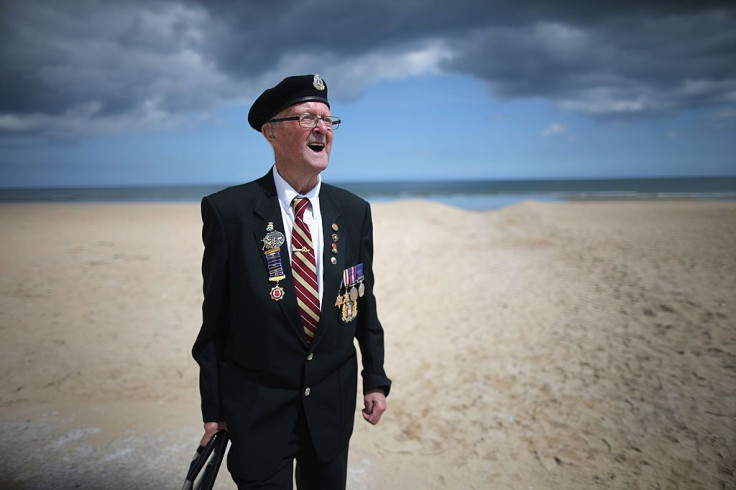MRI Scans Reveal Adding Mindfulness Training To Therapy Sessions Helps Treat PTSD In Veterans

Mindfulness, the practice of focusing on being in the present, is an alternative form of therapy that has been gaining ground in the medical field as research begins to show its effectiveness in treating stress, pain, and even diabetes. Now, in a new paper published in Depression and Anxiety, researchers from the University of Michigan Medical School and VA Ann Arbor Healthcare System report mindfulness may be an effective treatment for post-traumatic stress disorder (PTSD) in veterans.
The study involved 23 veterans who fought wars in Iraq and Afghanistan, and were diagnosed with PTSD. They were split into two groups, each of which underwent different forms of group therapy. Nine of the veterans, the control group, were given regular therapy sessions, while the remaining 14 veterans were given therapy sessions that included training in mindfulness.
"Mindfulness can help people cope with and manage their trauma memories, explore their patterns of avoidance when confronting reminders of their trauma, and better understand their reactions to their symptoms," said Anthony King, leader of the study, in a press release. "It helps them feel more grounded, and to notice that even very painful memories have a beginning, a middle, and an end — that they can become manageable and feel safer. It’s hard work, but it can pay off."
Compared to the control group, the veterans who underwent mindfulness training saw greater improvement in their PTSD symptoms, and the researchers noted that those who experienced the greatest relief were also those who grew the most brain connections.
“We are hopeful that this brain signature of increased connection to areas associated with volitional attention shifting at rest may be helpful for managing PTSD, and may help patients have more capacity to help themselves get out of being stuck in painful ruts of trauma memories and rumination," King said.
The researchers used functional magnetic resonance imaging (fMRI) to monitor the veterans’ brain activity before and after the therapy sessions. Prior to therapy, the veterans exhibited unusual activity in regions of the brain associated with generating responses to threats and danger. Even after the researchers asked the veterans to rest quietly and let their minds wander, fMRI scans continued to show high levels of brain activity associated with threat response, as well as a lack of activity in the “default mode” region of the brain that is involved with reflective thinking.
For the veterans who completed mindfulness training, however, these patterns of brain activity changed dramatically after therapy. fMRI scans revealed that the veterans had developed stronger connections between two brain networks: one involved in processing thoughts and one involved in shifting and directing attention.
"The brain findings suggest that mindfulness training may have helped the veterans develop more capacity to shift their attention and get themselves out of being ‘stuck’ in painful cycles of thoughts," King said. "We hope it may provide emotional regulation skills to help bring them to a place where they feel better able to process their traumas."
PTSD affects eight million people annually, but veterans are far more susceptible to the disorder. It is estimated that up to 20 percent of veterans who fought in Iraq have PTSD, while Gulf War and Vietnam veterans reach 12 and 15 percent, respectively. PTSD is often characterized by vivid and traumatic flashbacks and nightmares, in addition to an increased risk for depression and anxiety.
The study authors note that the size of their study was relatively small, and should be repeated with a larger sample size. The authors emphasized that, as of now, people with PTSD should not use mindfulness as the sole treatment for PTSD. They report that mindfulness sessions can sometimes trigger symptoms such as intrusive thoughts, so it is important to work with a trained counselor.
Source: Liberzon I, King A, et al. Depression and Anxiety . 2016.



























